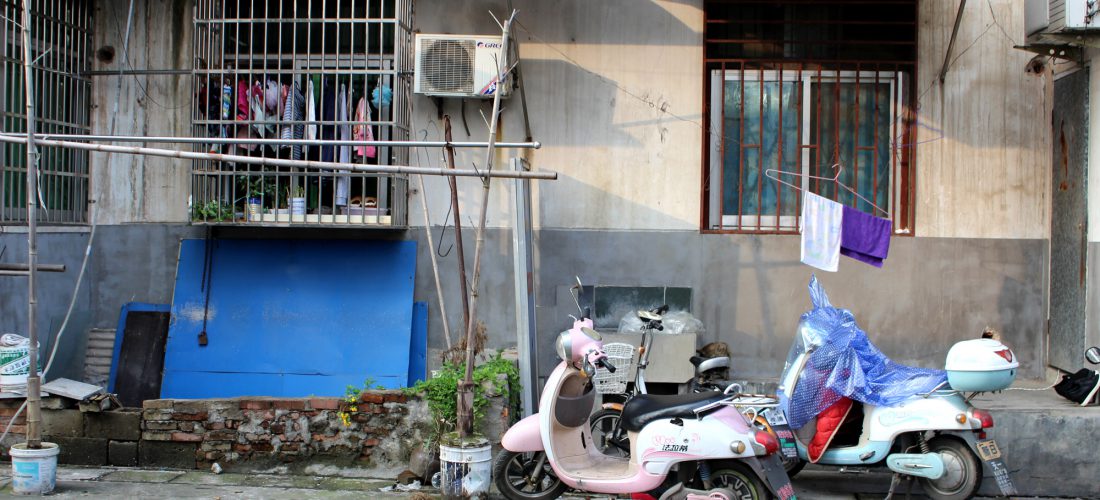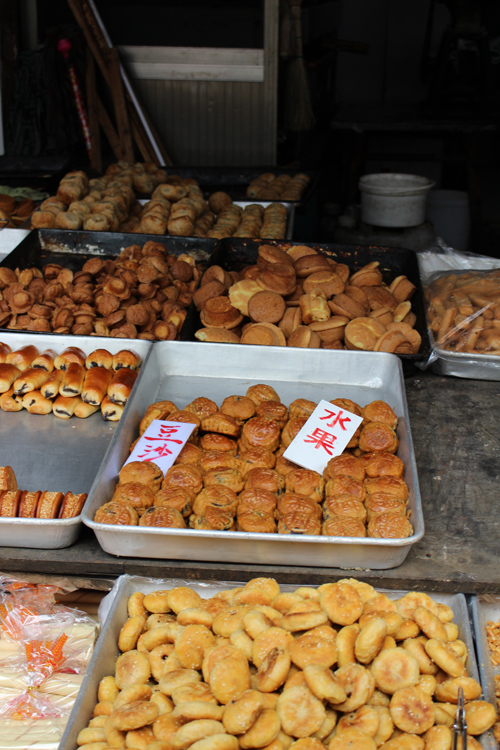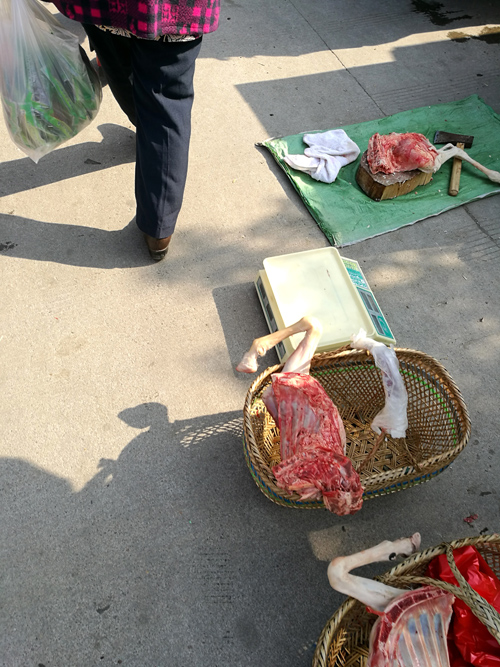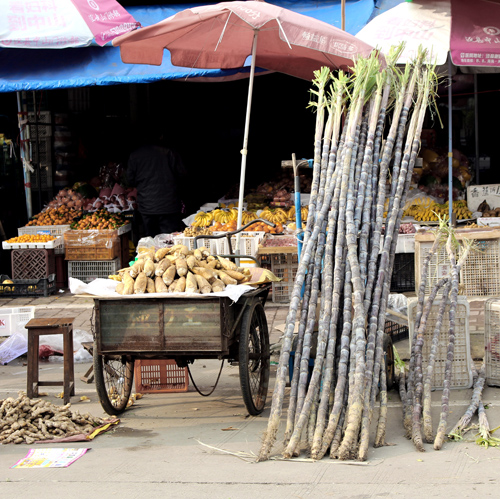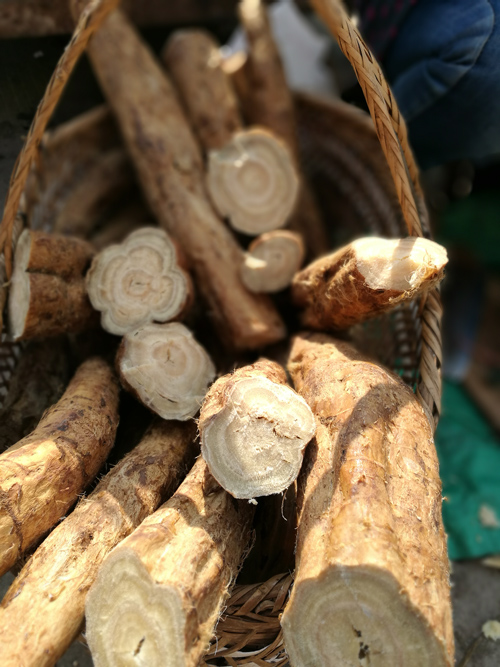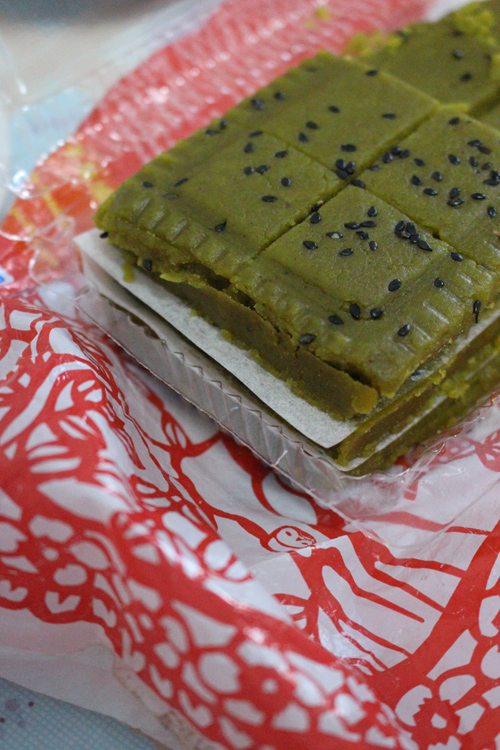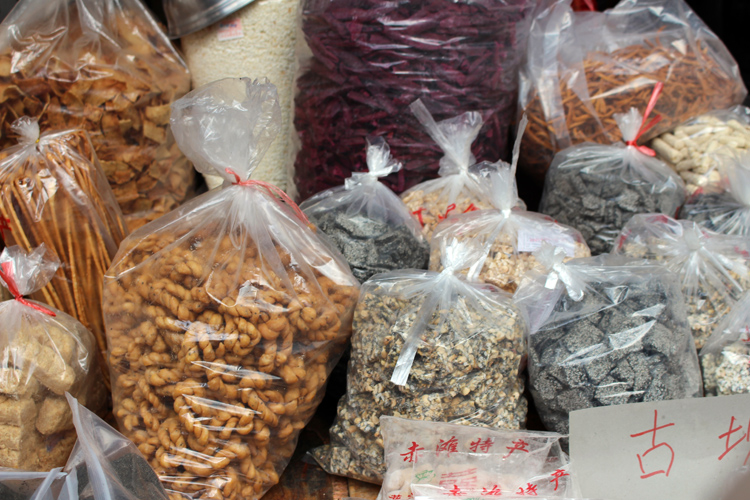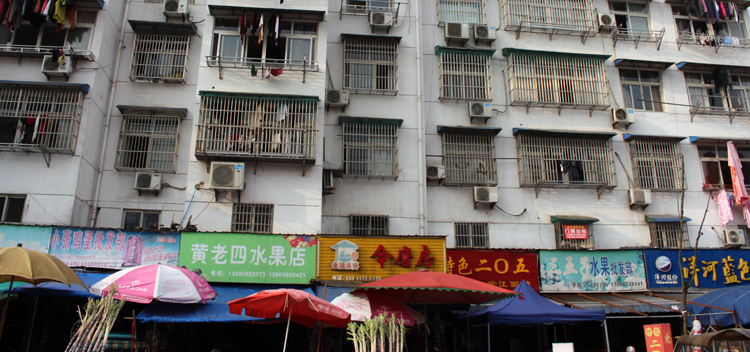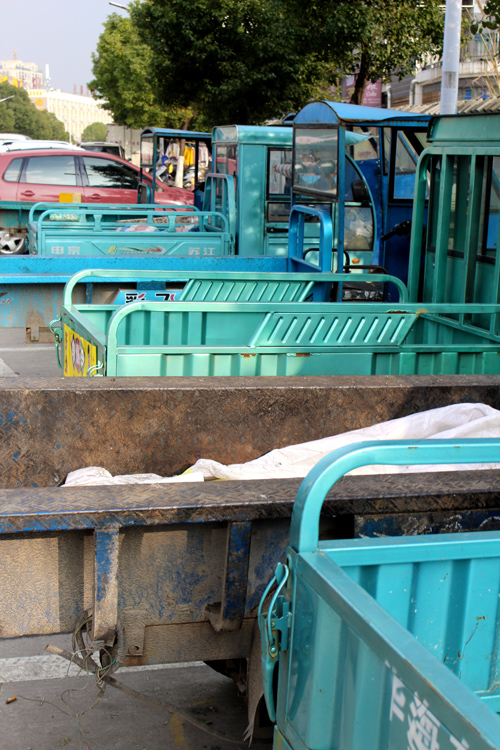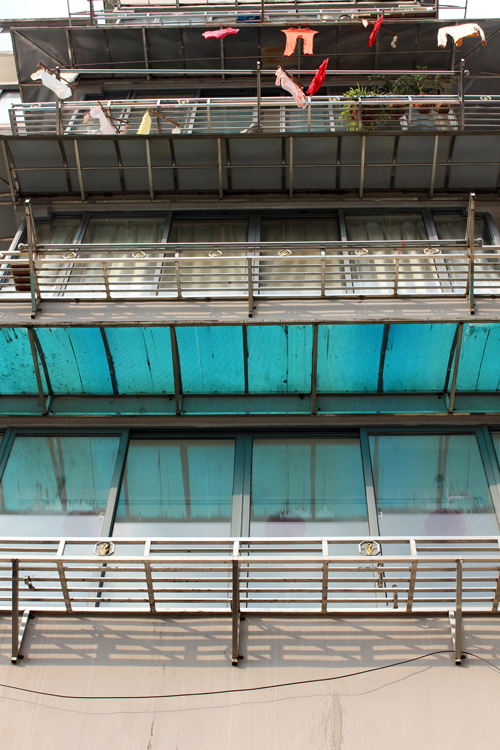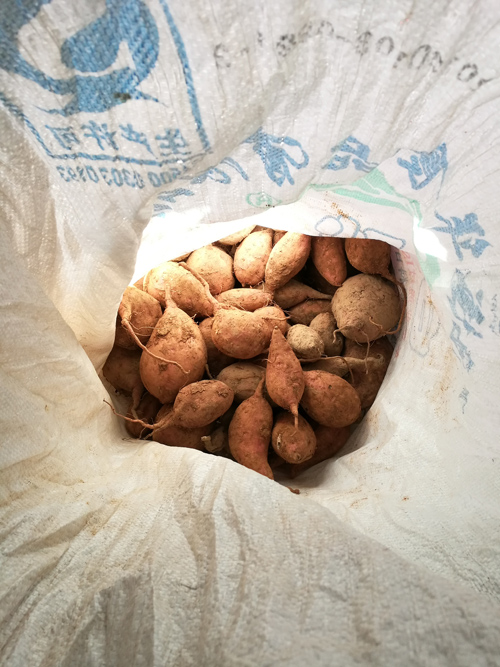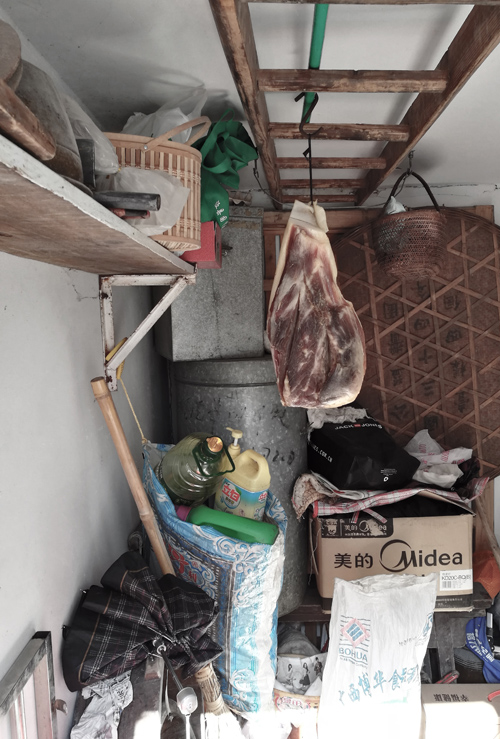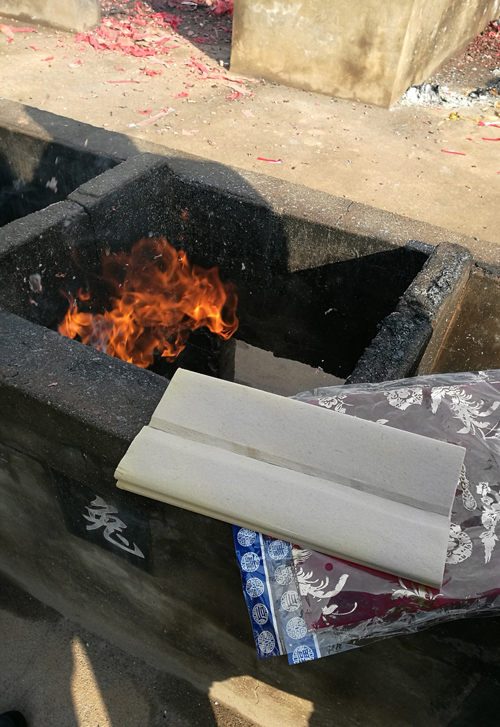泾县 // Jing County, 安徽省 // Anhui Province. The clock here is supposed to tick at the same pace as in the megacities of Beijing or Shanghai. A considerable size by western standards, it is tiny, almost rural in China’s point of view. Surrounded by villages in the mountain ranges of Anhui, it is a meeting point, market place and traffic joint for villagers. A big village.
Food here is given by the surrounding mountains and rivers and dealt directly at the market by farmers or their families. No fancy equipment, simple facilities. Fish are kept in washbowls or laid onto newspaper. An old lady advertizes bamboo shoots dug out by her son earlier in the morning. The farmer next to it is selling four sheep legs.
While the metropolises in Asia are more or less westernized, the taste here does not seem to have changed. The snacks seen are mostly simple and regional snacks – rice crackers, peanut brittle, sesame bars, rice flour cake, green bean cake…no chocolate in sight. Topseller are also pickled vegetables such as radish, garlic and lots and lots of pickled ginger – highly recommended. Other goodies include hard pressed tofu – best served with tea alongside pickled ginger – and the infamous 锅巴 // guoba: the crispy layer of rice at the bottom of the pan, fried or dried. It is eaten as a snack, as a side dish or as a main dish. Special treat from this region.
In China, burning money belongs to cemeteries like holy water to a church. Nowadays, special areas in cemeteries are designated to those rituals to prevent fire accidents. Stacks of (fake) 50, 100 or sometimes 1.000.000 Yuan notes are burnt alongside other paper things. The ashes bring those earthly goods to the honored family member or friend above. Paper clothes are another popular choice, but as time changes, many other things are available in paper edition such as smartphones, laptops etc…
Tuesday, December 27th, 2016
